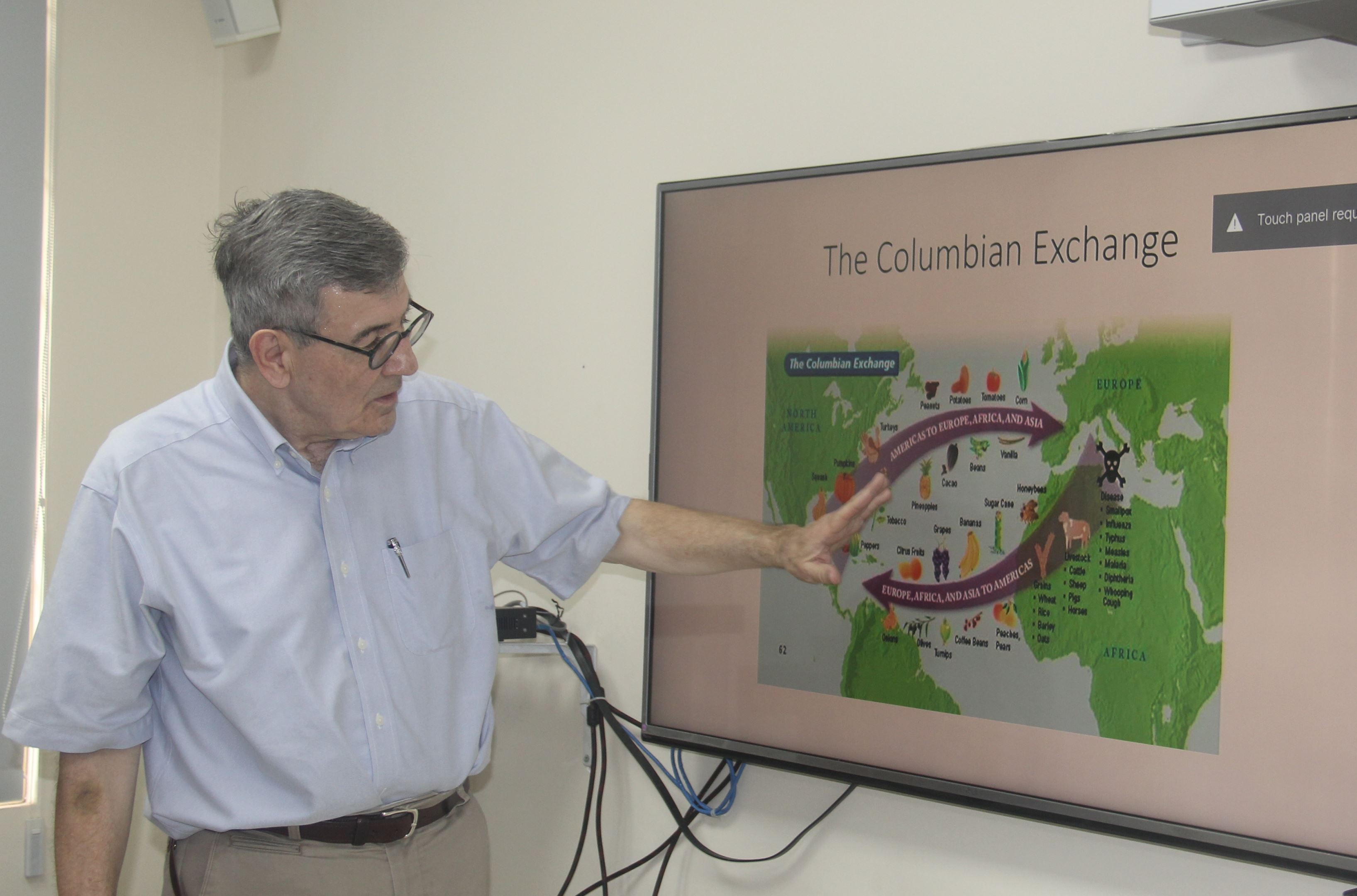The lecture focused on analyzing changes in the ecological environment under human impact throughout history. According to Professor Giraldez, human society has gone through five major turning points that have had a profound impact on the ecosystem, namely: the discovery and control of fire, the domestication of plants and animals in the Stone Age, the rise of cities, post-Columbian exchanges that led to ecological globalization, and finally the discovery and use of fossil fuels, especially oil.
Professor Giraldez particularly emphasized the changes in the global ecosystem that took place after Columbus's geographical discovery of America in the late 15th century. A series of plants (olive, grape, lemon, onion, coffee, banana, sugarcane, wheat, barley, rice), animals (sheep, pigs, horses, bees) were brought to America via Europe. In turn, from America, plants (sweet potatoes, squash, pineapple, beans, potatoes, peanuts, pepper tomatoes, cocoa, tobacco, vanilla, corn, etc.) and animals (turkeys) were transferred back to Europe and from there spread to other continents and regions. The exchange of plants and animals enriched the ecosystems of continents, regions and countries and this directly affected the diets of peoples around the world. However, the exchanges in the post-Columbian period also led to many negative consequences. Diseases such as diphtheria, smallpox, influenza, typhus, measles, malaria, chickenpox, etc. also followed Europeans to new lands. Due to the lack of immune system development and poor medical conditions, a large part of the indigenous population in the Americas, Australia, New Zealand, etc. became infected and died. Along with the colonial conquests by guns and global climate change in the 16th-18th centuries, the spread of epidemics led to the collapse of a series of civilizations in the Americas and Oceania.


The discussion was very lively. Many questions focused on the issue of why Asia, which was also under European colonial rule, did not see its civilizations and peoples become extinct. According to Professor Giraldez, unlike the Americas and Oceania, Asia had a long history of contact with Europe, so Asians themselves developed resistance to some common diseases in Europe. Many diseases in Europe even originated in Asia. Therefore, Asians are immune to some diseases brought by Europeans. In addition, the high level of medical care and traditional medicine of indigenous peoples have reduced the harmful effects of diseases brought from Europe. Other questions related to the impact of fossil fuel use on the ecosystem, the impact of the Little Ice Age in history, the domestication of animals and plants, etc. were all answered in detail and easily understood by Professor Giraldez.
Author:Thuy Nguyen (Faculty of History)
Newer news
Older news